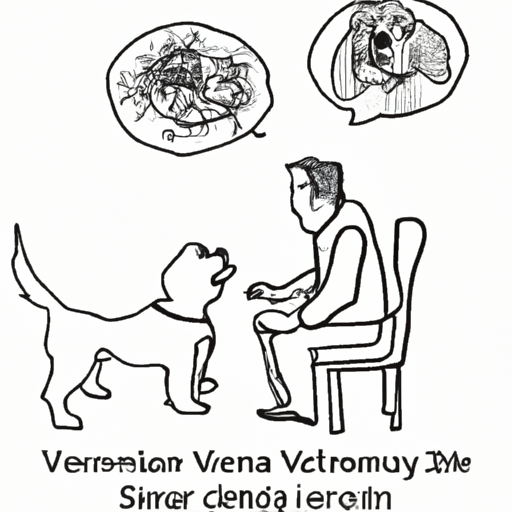As a caregiver, you must be curious about what causes seizures in dogs. This comprehensive guide will help you understand the reasons behind this distressing condition, so you can provide the best possible care for your furry friend.
1. Understanding the Basics
Seizures in dogs are a sudden and uncontrolled burst of abnormal electrical activity in your dog’s brain. This can cause changes in your dog’s behavior, movement, or consciousness. You may see your dog exhibit symptoms like muscle twitching, loss of consciousness, drooling, or jerking movements.
2. The Common Causes
There are several potential causes for seizures in dogs. Here are the most common ones:
- Epilepsy: This is the most common cause of seizures in dogs. It is a brain disorder that causes recurring seizures.
- Liver Disease: The liver helps remove toxins from the body. If it is not functioning properly, toxins can build up in your dog’s system and trigger a seizure.
- Kidney Failure: Similar to liver disease, kidney failure can lead to a buildup of waste products in the bloodstream, which can lead to seizures.
- Brain Tumors: If your dog has a brain tumor, pressure on the brain can cause seizures.
- Ingesting poison: Certain poisons, such as antifreeze, can cause seizures in dogs.
3. Identifying the Triggers
While the root cause of the seizure may be a medical condition, certain factors can trigger a seizure. These can include:
- Stress or excitement
- Changes in diet
- Exposure to certain chemicals or toxins
- Lack of sleep
4. Medical Diagnosis
The diagnosis of seizures in dogs involves a complete physical examination, blood tests, and possibly a brain scan. Here’s a simple table to understand the primary tests:
| Test | Purpose |
|---|---|
| Blood test | Check for signs of liver or kidney disease |
| Urine test | Detect any abnormal substances |
| MRI or CT scan | Look for brain tumors or other abnormalities |
5. Treatment Options
The treatment for seizures in dogs depends on the underlying cause. Your vet may prescribe antiseizure medication, recommend dietary changes, or suggest surgery if a brain tumor is the cause. The goal is to reduce the frequency and severity of seizures, and improve your dog’s quality of life.
Frequently Asked Questions
Q: Can seizures in dogs be cured?
A: While there’s no cure, seizures can be managed with proper medical care and lifestyle changes.
Q: Are seizures painful for dogs?
A: Dogs may feel confusion or fear during a seizure, but they do not feel pain in the way humans do.
Q: Is it dangerous to touch a dog while it’s having a seizure?
A: It’s best to keep a safe distance to avoid accidental bites, but try to remove any objects that may harm your dog during a seizure.
Remember, seizures can be a frightening experience for both you and your pet. It’s essential to stay calm and consult with a veterinarian if your dog experiences a seizure.



